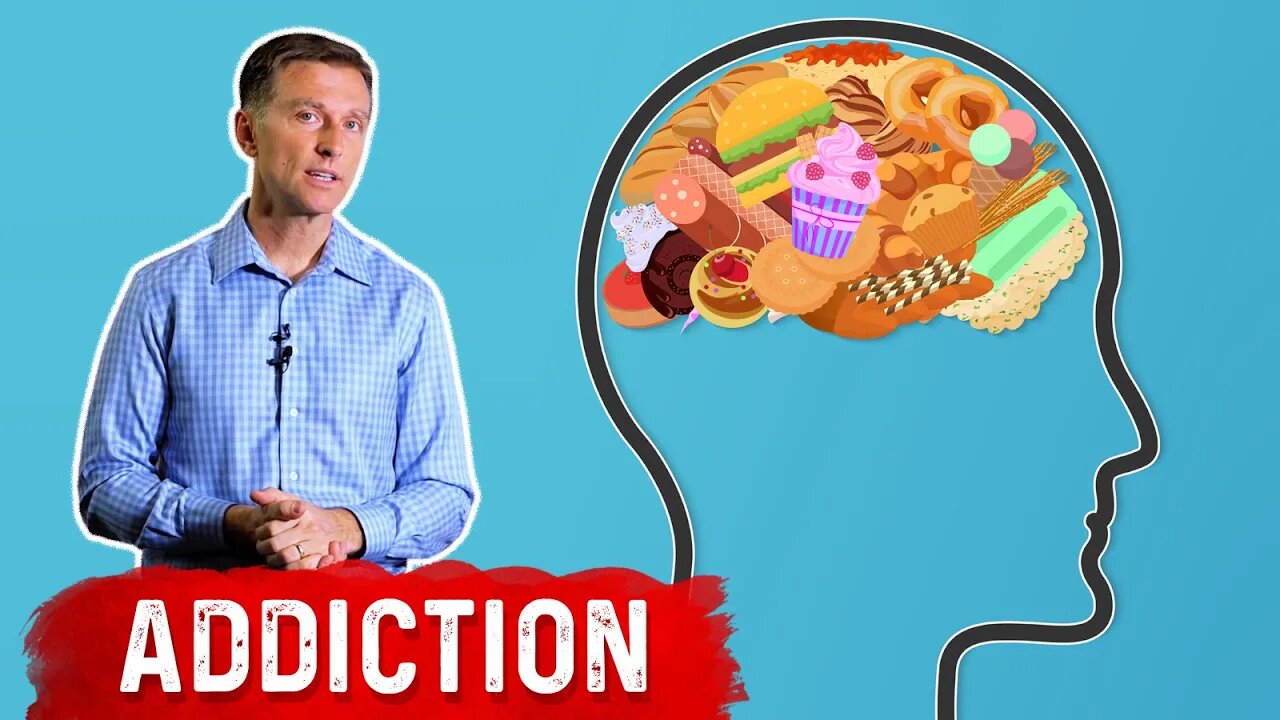Premium Only Content

Your Brain on Processed Foods
Are processed foods addicting? Check this out!
Hooked Book by Michael Moss: https://www.amazon.com/Hooked-Food-Giants-Exploit-Addictions/dp/0812997298
Timestamps
0:00 Your brain on processed foods
0:12 Are processed foods addicting?
0:55 Food companies and processed food
2:00 How addiction is diagnosed
4:35 Bulletproof your immune system *free course!
I’m reading a very interesting book called “Hooked” by Michael Moss. In this book, he talks about the brain on processed foods, and I want to share a little bit about this.
This book is really about how much more addicting processed foods can be than alcohol, smoking, or even drugs. The speed at which the sugar touches your tongue and connects to the reward circuitry of your brain is about 600 milliseconds. This is 20 times faster than if you were to smoke a cigarette and have nicotine enter the brain.
Apparently, some food companies have even suppressed some of the research on sugar. Not only that, but they’ve influenced various laws to prevent being sued for side effects that occur from consuming processed foods. In the 70s, food companies even started buying up the diet industry.
I believe processed foods and sugar fit into the category of addictions. There are certain criteria that must be met to diagnose addiction or substance use disorder. If you meet 2-3 of the criteria, you have a mild substance use disorder. If you meet 4-5, this is considered a moderate substance use disorder. If you meet 6 or more, you have a severe substance use disorder.
The criteria includes:
1. Hazardous use
Is the substance dangerous to yourself or others? Can you overdose on it?
2. Social or interpersonal problems related to use
Are there relationship problems or conflicts with others related to use?
3. Neglected major roles
Failing to meet responsibility at work, school, or home because of substance use.
4. Withdrawal
When you stop using the substance, you experience withdrawal symptoms.
5. Tolerance
You’ve built up a tolerance to the substance, so you have to do more to get the same effect.
6. Use larger amounts or use the substance for longer periods of time
7. Repeated attempts to control use or quit
You’ve tried to cut back or quit entirely but have not been successful.
8. Much time spent using
You dedicate a lot of time to the substance or eating the processed food.
9. Physical or psychological problems related to use
Your substance abuse has lead to physical health problems, such as liver damage or lung cancer, or psychological problems, such as depression or anxiety.
10. Giving up on activities
You’ve stopped doing some of the activities you once enjoyed in order to use the substance.
11. Cravings
You experience cravings for the substance.
Dr. Eric Berg DC Bio:
Dr. Berg, age 58, is a chiropractor who specializes in Healthy Ketosis & Intermittent Fasting. He is the author of the best-selling book The Healthy Keto Plan, and is the Director of Dr. Berg Nutritionals. He no longer practices, but focuses on health education through social media.
Follow us on FACEBOOK: https://fb.me/DrEricBerg
Disclaimer:
Dr. Eric Berg received his Doctor of Chiropractic degree from Palmer College of Chiropractic in 1988. His use of “doctor” or “Dr.” in relation to himself solely refers to that degree. Dr. Berg is a licensed chiropractor in Virginia, California, and Louisiana, but he no longer practices chiropractic in any state and does not see patients so he can focus on educating people as a full time activity, yet he maintains an active license. This video is for general informational purposes only. It should not be used to self-diagnose and it is not a substitute for a medical exam, cure, treatment, diagnosis, and prescription or recommendation. It does not create a doctor-patient relationship between Dr. Berg and you. You should not make any change in your health regimen or diet before first consulting a physician and obtaining a medical exam, diagnosis, and recommendation. Always seek the advice of a physician or other qualified health provider with any questions you may have regarding a medical condition.
#keto #ketodiet #weightloss #ketolifestyle
Thanks for watching! I hope this helps you better understand your brain on processed foods.
-
 7:10
7:10
Dr. Eric Berg
8 days agoSTOP Nighttime Peeing Now: IT REALLY WORKS
7.76K23 -
 1:03:27
1:03:27
Glenn Greenwald
5 hours agoUK Pressures Apple to Break Encryption in Major Privacy Clash; How Dems Can Win Back the Working Class: With Former Bernie Sanders Campaign Manager Faiz Shakir | SYSTEM UPDATE #419
37.8K41 -
 47:39
47:39
Michael Franzese
4 hours agoJewelry King Trax NYC EXPOSES How the Powerful Steal from You
45.3K8 -
 LIVE
LIVE
Slightly Offensive
3 hours ago $2.86 earnedCandace REDPILLS the Masses in BOMBSHELL Theo Von Interview | Guest: Shane Cashman
1,080 watching -
 LIVE
LIVE
megimu32
3 hours agoON THE SUBJECT: IRL Streamers Attacked & Nostalgic Animal Movies That Made Us Cry
504 watching -
 1:00:54
1:00:54
The Tom Renz Show
7 hours agoMore Epstein/FBI, a Scary Trade War, & the Dem Echo Chamber
7.49K1 -
 40:43
40:43
Kimberly Guilfoyle
8 hours agoDems Double Down on Delusion-Why? Live with Tony Kinnett & Bo French | Ep.202
77.8K31 -
 1:28:42
1:28:42
Redacted News
6 hours agoBREAKING! SOMETHING BIG IS HAPPENING IN EUROPE ALL OUT WAR IS COMING AGAINST RUSSIA, TRUMP FURIOUS
121K272 -
 47:50
47:50
Candace Show Podcast
6 hours agoBREAKING: Judge Makes Statement Regarding Taylor Swift's Text Messages. | Candace Ep 155
113K113 -
 1:14:23
1:14:23
Josh Pate's College Football Show
3 hours ago $0.29 earnedCFB’s Most Hated Teams | FSU & Clemson Future | Big Ten Win Totals | Star Rankings Overrated?
14.5K